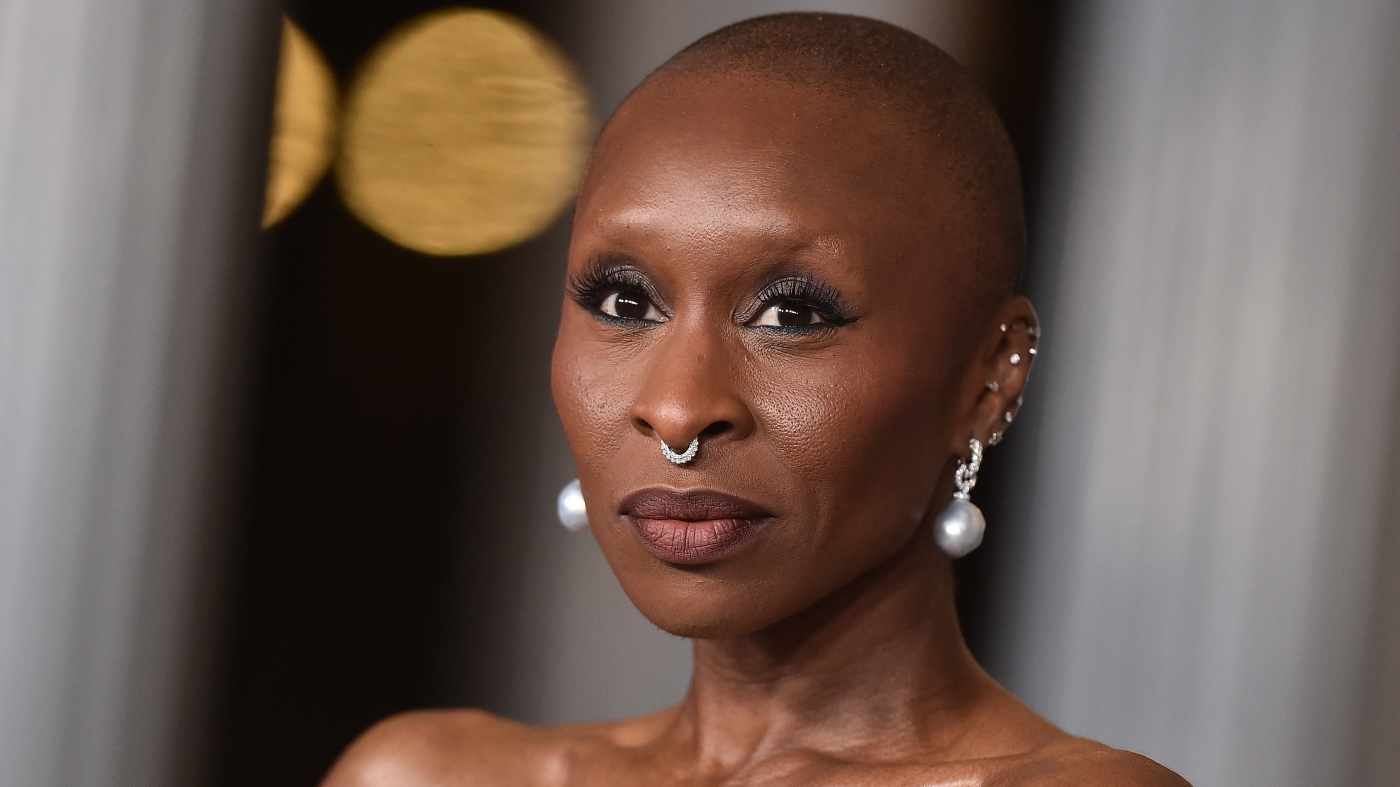Cynthia Erivo recently attended the LACMA Art+Film Gala at the Los Angeles County Museum of Art, where she engaged in discussions about her role in the anticipated film, Wicked: For Good. In this new installment, her character, Elphaba, the infamous Wicked Witch, undergoes a transformation as she stops justifying herself to a world filled with misconceptions and instead embraces her inherent strength.
Erivo draws parallels between her life experiences and Elphaba’s journey. “There were so many sort of real parallels — the relationship with her father, the relationship to being in spaces that don’t really include you,” she explains. “The feelings you see in the movie are very real feelings.” Raised in London by Nigerian immigrant parents, Erivo discovered her extraordinary singing talent early on. Despite her enrollment at the Royal Academy of Dramatic Art, she often felt out of place. “It was a tough experience to be there. I just didn’t think I fit,” she reflects. “And I think there was sort of a lack of wanting to understand where I was coming from or who I was as a person.”
Erivo first gained recognition on Broadway with her performance in The Color Purple, earning a Tony Award for her role as Celie. She subsequently received an Oscar nomination for her portrayal of Harriet Tubman and starred as Aretha Franklin in Genius Aretha. In Wicked: For Good, she reprises her role as Elphaba alongside Ariana Grande, who plays Glinda. The filming of both Wicked movies took place simultaneously, which presented unique challenges. “There were days where, luckily, you would sort of know where the character was at this point [in the story],” Erivo recounts. “But there were some times where you’re sort of guessing really, because you hadn’t shot a certain scene, you’re just sort of assuming that the scene is gonna feel this way.”
In addition to her film career, Erivo has released a memoir titled Simply More: A Book for Anyone who Has Been Told They’re Too Much, which chronicles her upbringing in South London and her journey to the stage.
Insights from Erivo on Physical Preparation for Wicked
Describing her rigorous physical training for Wicked, Erivo shares, “I’d [swim] laps, then sing and then I’d run. … It’s the idea that if I’m doing something that’s strenuous and I can sing it whilst I’m doing the thing that’s strenuous, when I’m standing still, it’ll just be there.” She emphasizes the importance of her body adapting to the demands of performance: “Once your body has it in it, it just sort of lives with you. And so that’s what I wanted for myself.”
Character Immersion Through Scent
Erivo explains her unique method of getting into character through the use of perfume, a practice she began years ago. “The first time I did it, I think I did with Harriet [Tubman] and hers was, like, cedarwood and lavender,” she recalls, noting that she aimed for scents that felt authentic to the characters’ historical contexts. For Elphaba, she experimented with floral notes, creating a scent called Witchy Woo, which she initially doubted would be fitting for the character. “When I found it, I thought, there’s no way this is going to work,” she admits, but later discovered its suitability through personal experience.
Transformation Through Hair
Erivo reflects on her decision to cut and ultimately shave her hair, stating, “I want them to just see my face. I want, when I walk in, for them to see a canvas that can transform.” This choice emerged after her time at drama school, as she felt the pressure to conform to specific beauty standards. “I want to lessen the distraction,” she explains, emphasizing her desire to present her true self. The act of cutting her hair symbolized a personal transformation: “When I cut my hair, I felt strangely like myself.”
Lessons from a Backstage Experience
Reflecting on an incident where she allowed another actor to lip-sync to her voice, Erivo expresses her initial frustration, saying, “It’s one of those moments that I’ve started to learn to forgive myself for because … previously I’ve felt so mad at myself.” Feeling protective of her voice, she asserts, “I do not say yes to everything at all. It has to mean something for me to sing, and it has to make sense.”
On Her Relationship with Her Father
Erivo discusses her relationship with her father and her acceptance of its complexities. “I think I’m in a real place of acceptance, and a strange apathy as well,” she shares. She emphasizes that she does not seek a reconciliation, stating, “If the point of doing the things you love or the point of doing a thing that you’re good at is to make someone care about you … it doesn’t sustain. Because really and truly, the most important love is that of yourself. It has to come from you first.”

